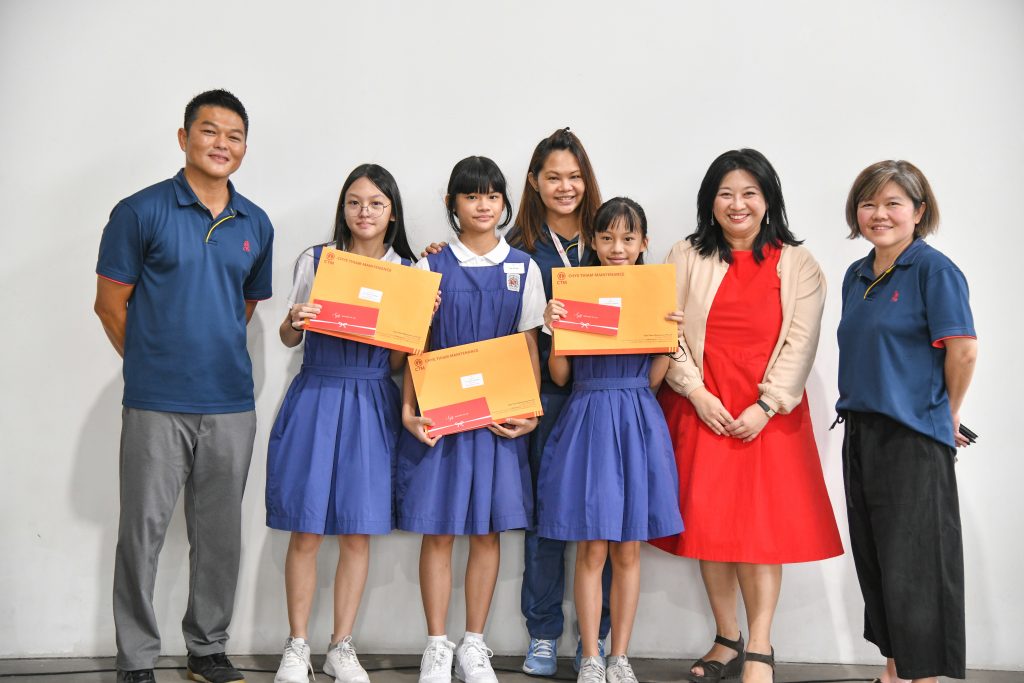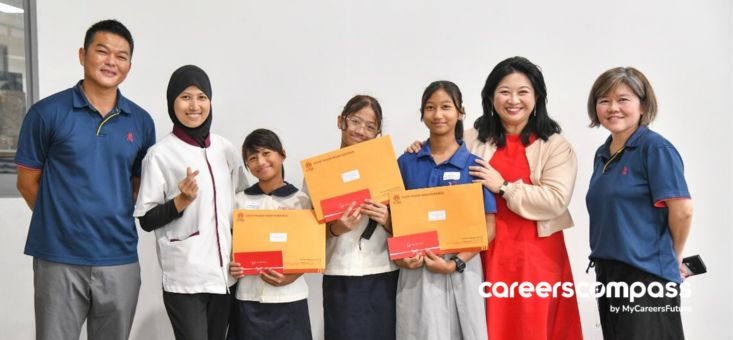We get it — globally and locally, women still do the heavy lifting when it comes to caregiving.
Those with children or aged parents may be concerned about returning to the workforce if they’ve taken a career break, especially with employers starting to call workers back to the office.
Childcare especially remains an issue for some mothers. After all, younger children still need to be fed and managed after they return from school.
On the other hand, the financial benefits of returning to work in this post-Covid economy are attractive, especially with rising inflation and tightening household budgets and spending in recent years. In fact, according to a study by Oxfam International, the pandemic cost women globally at least US$800 billion in lost income in 2020, the equivalent of the combined gross national product of 98 countries!
There are over 100,000 jobs available on MyCareersFuture. Apply for your next job role here!
As it stands, women have already lost income and opportunities during the pandemic, with millions leaving the workforce worldwide to care for sick family members or children studying on home-based learning structures. Most parents know of the difficulty of getting their kids to focus during remote learning, which made flexible working during the pandemic a much-needed tonic.
However, more Singapore women are returning to the workforce. There has been remarkable growth in our employment rate for women aged 25 to 64, from 73% in 2020 to 76% in 2022, despite the pandemic, according to market reports.
Part of the appeal of returning to the workforce for back-to-work women (BTWW) in this climate is also better wages and training incentives to support their future career progression.
Career trials: See if going back to work is sustainable for you
National Trades Union Congress (NTUC) U Women and Family (U WAF) and Chye Thiam Maintenance Pte Ltd (CTM) announced the “C U Back at Work” (CUB) Programme, a Career Trial programme supported by NTUC U WAF and Workforce Singapore (WSG).
CTM, a company specialising in environmental services and building maintenance, offers various positions from operations and administration to management opportunities in Singapore.
The CUB career trial programme will last six weeks and consists of seven curated training modules and on-the-job training for all suitable candidates.
Eligible participants will receive training allowances during the career trial duration. The participants will also receive a retention bonus and a one-time S$100 incentive per module completed during the career trial.
For every technical training module completed, the participant will also receive a S$30 skills incentive to their salaries.
Upon completion of the trial, participants will be deployed to Singapore worksites and projects and can look forward to a starting salary of S$3000, which is inclusive of the skills incentives.
The CUB Programme is also designed to be flexible in nature, allowing participants to choose suitable timings for their training and work schedules. Participants will be put on a career roadmap after they complete the training, where they can progress towards specialised and supervisory roles.
Wallace Tan, Deputy Director (Operations) at Chye Thiam Maintenance Pte Ltd, shared: “The women who join us under the CUB programme, will be exposed to a series of generic learning and familiarisation of what our workers do on a daily basis.
“We will assess their inclination and effectiveness in the respective operational and administrative roles before recommending them to take on specific positions subsequently.
All job listings under the CUB programme will involve three to four working hours in different timeslots, which are especially helpful to women caregivers returning to the workforce as they can pick the slots that fit their availability while attending to family and caregiving needs.
Wallace also shared an example for one of their current employees: “Mdm Tan sends her two primary school-going children to school at 7am, and she is available to work from 8am to 12noon.
“This means she will finish her work shift just in time for her to pick her children up from school at 1.30pm.
“Mrs Tan is also able to work a full shift on a Saturday as her spouse is at home taking care of the children, and changes can be arranged with her managers too!”

We understand — flexibility matters
As Yeo Wan Ling, Director for NTUC U WAF, shared, “At NTUC U Women and Family, we advocate for greater opportunities for women returning to work, especially through flexible work arrangements.
“There are 240,000 women of economic age outside of the workforce due to caregiving responsibilities.
“Greater flexibility in working arrangements will go a long way in supporting women who juggle work with caregiving responsibilities.
“CTM’s commitment towards creating a better work environment for women returners marks a first step for the industry, where previously flexible work arrangements were unheard of.
“It shows that this is possible even in an industry with very operational work and fixed hours.
“We hope this initiative will inspire other industries and companies towards creative ways of incorporating flexible work arrangements in various professions.
“Through this, we hope to create more opportunities for women returning to work!”
Currently, Chye Thiam has close to 300 female employees, taking on a mixture of operational (team leaders) and administrative roles (e.g admin assistant/executive) roles working in flexible arrangements, also taking skills-based courses, and various confidence-lifting and soft-skill courses to enhance their proficiency on-the-job.
Wallace explained: “For our female employees who still have school-going children, we understand their concerns. They worry that jobs which requires 9-5 work hours, or even shift work that falls within the hours they need to send or pick up their kids or aged parents to school or care facilities, will not be suitable for them.
“As such, we curate our hours so they can fulfil their caregiving duties, and then work around those hours, and in fact, also allow them to job switch from various roles within the company at different hours!”

Your previous work experience doesn’t have to be wasted
He explained that CTM has realised some of their BTWW workers have accounting, human resources or professional backgrounds. So while they may be helping to supervise workers in the day, they take care of other administrative roles later in the day while taking their caretaking needs and schedule into account.
“This means their job scopes are broader, based on previous work experiences, rather than strict silos, which makes job roles and hours more flexible too.”
Training, reskilling and upskilling also help BTWW in their career trials and subsequent employment.
“We prepare them for beyond what’s normally required for their roles in the industry.
“For normal cleaners and rank and file workers, they’re only needed to get two WSQ certificates, but for our BTWW, we equip them with six WSG certificates, so they understand the full scope of work, and are able to supervise other workers.
Wallace concluded: “If we identify BTWW with high potential, we send them for other courses as well. We don’t see an issue in moving them up to the corporate ranks to management positions, as we have with other employees in our company in previous years!”















